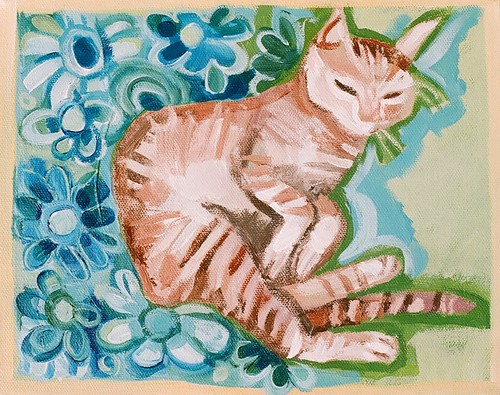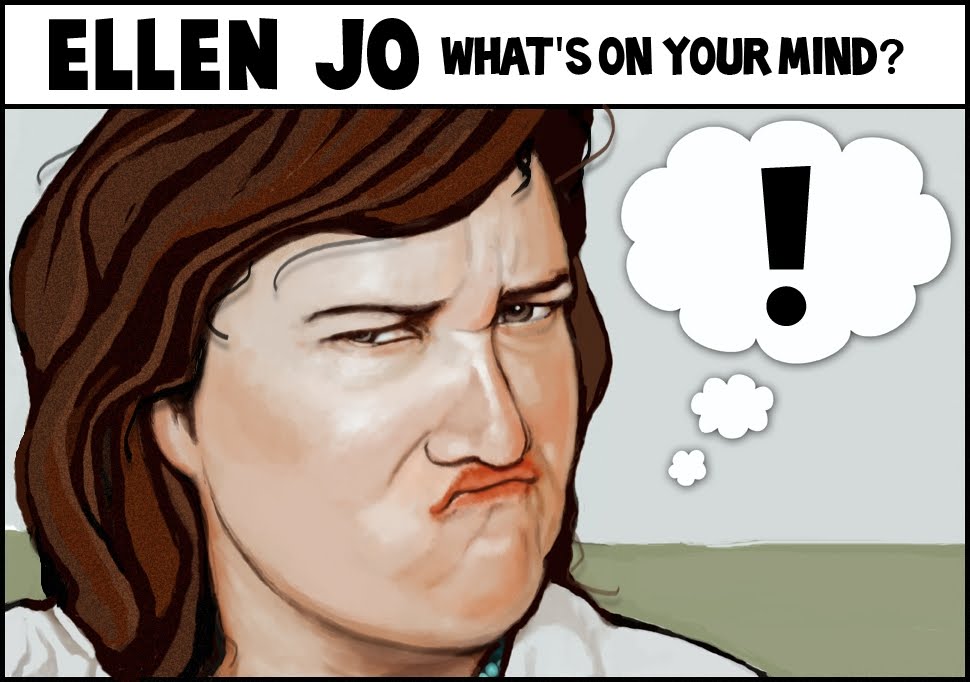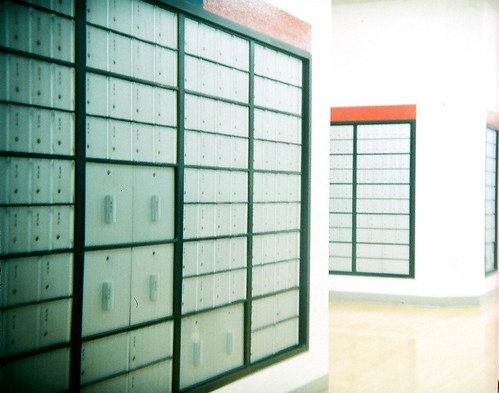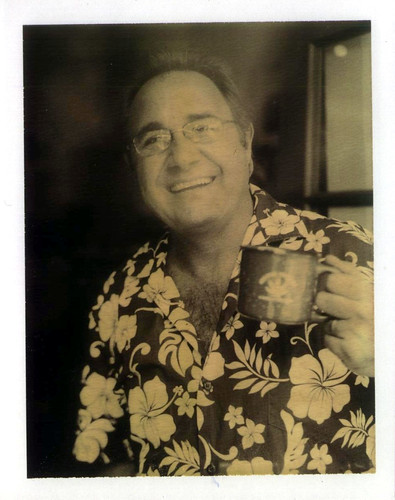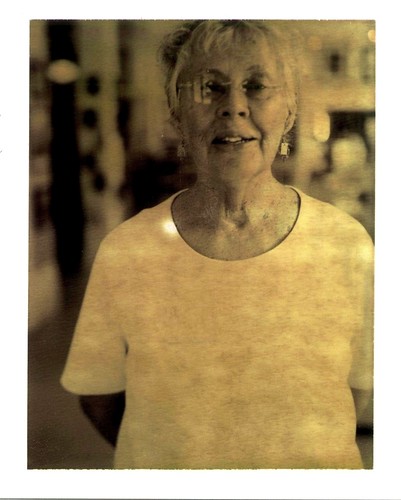It's like an instant party for that boy.
Everyone knows I love dogs, and that I have dogs, since they frequently accompany us, and are often famous on the internet for wearing silly costumes or posing in front of famous locations.
But what many don't realize is I am a cat person as well. In fact, during the rare time when there was no cat in our house, things seem overloaded with canine energy. We need a feline to balance things out. This may be my Libra Moon talking, all balancey and stuff, but I do know a house is best when there are both cats and dogs inside.

I never had a cat as a kid. We were proudly, chauvanistically "dog people". My mom even had a silly book, popular in the '80s called "101 Uses for a Dead Cat." Though we thought it was funny at the time, in retrospect it seems a bit remarkable that such a thing was a comedic hit. We didn't "get" cats. The only one we knew was this semi-feral tom named "Morris", who belonged to our neighbor. He prowled the woods along the railroad tracks looking for battles. He always looked like a raggedy mess, all torn up, bloody, missing pieces.
"Mo-o-o-o-o-ooom! Morris sprayed in my room!", I remember my friend Theresa yelling on more than one occasion. "What does that mean?", I asked.
"He pissed all over my wall!/bed/ garbage can/etc.!", she explained.
"Ew!"
Dogs were gross in their own ways, rolling in and eating filthy things... but the cat pissing on my friend's belongings seemed much worse than anything the dogs ever did. Somehow more wild and dangerous. Claiming people as their territory.
As I got older, I knew cats, and had cat friends. But never had my own cat.
I worked at a garden center in college that had a mascot named Jack. Good ol' One-eyed Jack, Really he only had one eye. One was stitched shut and the fur grew right over it like there had never been an eye there at all. He was still a great mouser, despite sometimes losing his prey right in front of his face. Jack was a great animal. Sandy colored, and short-haired and stripey-ish. I dunno, my memory of his appearance has faded from lack of a photograph. I wonder what ever became of Jack. I went back to college and that cat probably got old and faded away. Or hit by a car on bustling Dempster.
My Mom got a big cream colored Persian cat named Alex sometime in the early 1990s. She trepidatiously offered to take it, as it belonged to her boss' family who had a new baby, or something, and needed to find a new home for the cat. Allergies or something. Surprising to us, she brought home this cat, this freaky long-haired exotic cat, with big golden eyes. He spent the first hours hiding under the basement stairs. Alex turned out to be a real gem of a pet, peacefully co-existing with our Scottie, MacDuff, in his final years, and living on into the 21st century as a companion to my Mom, and an inspiration for great photography. I was mostly gone, away from home at school, but my brother and Alex became pals. Apparently, Alex liked to be spun around by his tail. He was crazy.
We first became cat people in the year 1998, when we lived in Jerome, Arizona. A neighborhood cat named Raoul adopted us as his new family. Irritated by a batch of new kittens infiltrating his house up the street, he set off to find a new home. He ended up on our front porch. Wild, burly, black with white socks and chin, Raoul was handsome and loud-mouthed. He stood on our porch and meowed his fool head off.
At first we dumped Dixie-cups of water on him in an effort to chase him away. But he was steadfast and did not give up. Then we started to enjoy him being there serenading us, waiting for us to get home from work. We started looking for him and calling for him, "Ra-oooooooooooooooooo-oul! Ra-oooooooooooulie Boo-Boo-la!"
He liked for us to pick burrs out of his fur, and patch up his battle wounds. One time he had a flap of loose skin on his head, like a toupe. We called it his "flip top head" and doctored it with ointment until it was healed and reattached. He'd go on strolls around town with us, following us to the old high school, or down to a secret waterfall. Raoul would disappear on "walk-about" now and again, causing us much worry until his return, always looking a bit haunted.

Raoul met his end on the freshly paved Highway 89A, a December night in the year 2000.
Finding his body on the road that cold morning killed something in us too. We buried Raoul in a grave down by the Verde River that we still pay respects to anytime we're near it.

Raoul's death actually propelled us towards leaving Jerome, and taking a leap into adulthood by signing up for a mortgage on a house in neighboring Clarkdale.
Soon after, Clyde arrived in our lives. The Jerome Humane Society staff has seen our Raoul tribute posters stapled aroud town, and thought we might be special enough to take on this kooky one-year old cat who'd become a handful for the elderly lady taking care of him. He was living in Cottonwood's Verde Villages, scrapping with wild critters. Something had nearly taken his tail clean off. The vet stitched it back on, and soon after, Clyde was our cat. Handsome and elegant, blue eyed, creamy colored, Clyde was a "flame point siamese mix" per the vet. He was very chatty, due to his siamese blood, and very friendly to everyone. He was not of the "hide under the bed" variety when guests came over. If there were visitors at the house, Clyde would stroll right out to the middle of the room, and flop over on his side as if to say, "Okay. You may commence to petting me now."
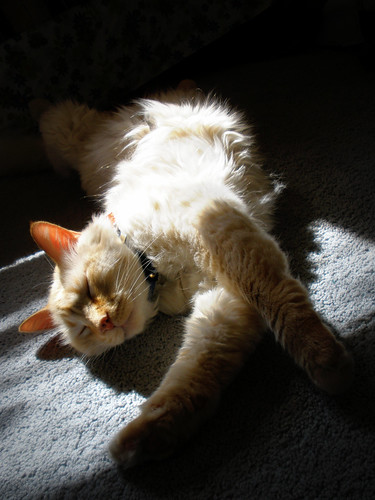

Clyde ushered in the Era of the Dog at our house, treating a chihuahua puppy named Floyd as if he were his very own little project. He could have easily eaten the tiny little rodent-sized dog, and probably fought every natural urge to do so.
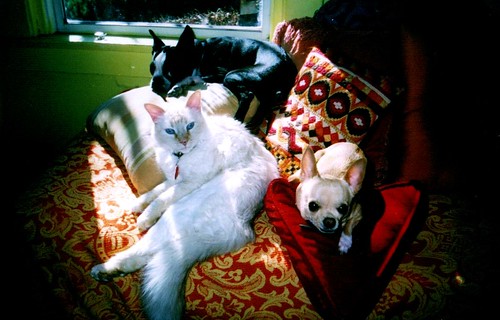
Clyde was the best cat ever. He was gentle and patient and never clawed the furniture (well, almost never). He liked riding in the car. He'd tolerate being walked on a leash. He was friendly and playful with the dogs. Except for our buddy Tim's miniature pinscher, Harrison, who was always his nemesis in the most amusing way. Harrison never was able to crack Clyde's code.
It was 10 years, almost to the day he first arrived, that Clyde got very quickly fatally ill and died.
Almost 11, he quit eating. He stopped grooming himself. He quit jumping on our bed at night, and most notably, he was quiet. This noisy loud mouth cat who is so vocal we frequently have to holler at him "Shuddup, cat!" was suddenly stone silent. We took him to the vet hoping he was merely constipated with hairballs or something simple. Turned out to not be simple at all. He was going into kidney failure from something called Polycystic Kidney Disease. It's genetic, common to "exotic" (Siamese, Persian, Himalayan) cats, and something he's had since he was a baby. There is no cure, no treatment, and there's nothing we could have done to change his trajectory. He was born with his kidneys full of tiny cysts.As he got older, the cysts grew and began to crowd out the good tissue, and impair kidney function.
The vet said he had no idea how sick he is, and still was remarkably responsive and social considering the toxins building up in his blood. They sent us home with some special food which is easier on the kidneys, and bags of fluids, tubes and needles so we could subcutaneously flush his system this week (inserting fat needle between the loose skin between his shoulder blades--it was a bit daunting) and perhaps bring his crazy blood test numbers back to something more level. The prognosis was grim. Kidney failure is the most frequent killer of cats, and this disease in particular was also what killed my Mom's Persian, Alex.
"That's the thing about pets. They only last 10 years or so...But it's worth it."- Chad sobbed as we lay in bed, crying and trying to sleep. I certainly never thought my cat would die at age 11. An indoor cat, fed an organic meat-based diet, given dental care, vaccinations and filtered water, and everything they say a good pet owner should give...I thought he'd live to a ripe old 17. This makes me question my notions about everything. We're all falling apart. The rug can be pulled out from under us at any moment. No one knows the future. We must live every day like it's our last. I said, "When Raoul was hit by a car it was so sudden when we found his body in the road. I was buried in grief. Now, even though Clyde is still alive, I've already started mourning his death. We have time to say a proper goodbye. And I guess that is a good thing." Sobs took over my chest, making me feel hollow inside.
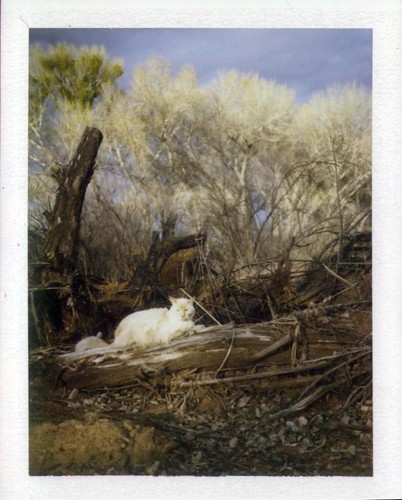
We took Clyde on adventures to the river. We let him bask in the sunshine of the yard, hiding in the tall grass and rubbing his whiskers in the yucca. We cleaned his fur with a wet cloth, like he was a kitten and we were his mother. We fed him liquified food from a baby bottle.
In the end, on a sunny March afternoon, Clyde took his last breath in our front yard. He now lies beneath the eucalyptus tree in a grave Chad spent all day digging. Buiried with him: sea shells, favorite toys, locks of all of our hair, and a Polaroid photo of Floyd and Ivan.
A couple of months after Clyde died, I thought it was time to return some feline energy to the house.
The dogs seemed positively lost without a cat bossing them around.
Then this guy shows up. Crazy kitten, getting into everyone's business. We named him Ned.

Born the first week of April 2011. We first saw these three tiny kittens at the Verde Valley Humane Society sometime in May. They'd been abandoned outside of Olsen's Grain on April 21st, and had spent most of their lives at the pound. One kitten was our favorite right away. Chad called him "Mr Personality." We returned a second time with Floyd to let him pick his favorite kitten, and he picked the same one as us. We named the kitten Ned.
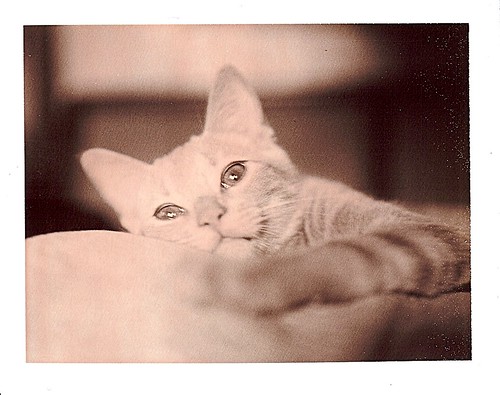
I've never had a kitten before. All of our cats came to us as adults. Kittens are nuts! So full of life! Chasing every strange shape and sound. My friend Heather says kittens are "dumb, and full of the energy of the sun". The first few days at home with the dogs were rough, and had me in tears. The dogs, well versed in life with a cat, showed immediate interest in Ned, but the kitten, knowing nothing about dogs, hissed and spit at them, stirring them into an angry lather.
A few days passed, and they all started to settle down, grow less afraid, and more content. Soon things were peaceful. Perfect. Floyd doesn't have much patience with the cat's shenanigans, but Ned knows not to bother him so much. He's got Ivan, who is always willing to wrestle. We are convinced Ned is Ivan's pet, just as Floyd belonged to Clyde.
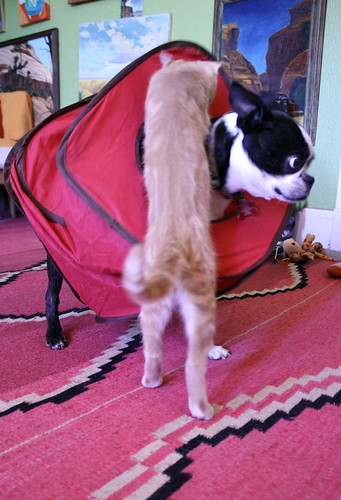
Ned follows me constantly, weaving in and out of my legs, jumping into any drawer or door I open, attacking my belt as I put it on, jumping on the bathroom sink to get a closer look as I brush my teeth, attacking any shadow or wayward scrap of fuzz or paper, playing "peek-a-boo" behind the blankets of our rumpled morning bed. He is nuts! But in all the best ways. He always wants to be where we are, and has learned to line up for treats along with the dogs when they're getting their evening biscuits. Today he was draped over Ivan's neck like a feather boa. What a koo koo bird.
May Neddy be blessed with a long happy life, healthy kidneys and best buddies. I do think Clyde would approve.
